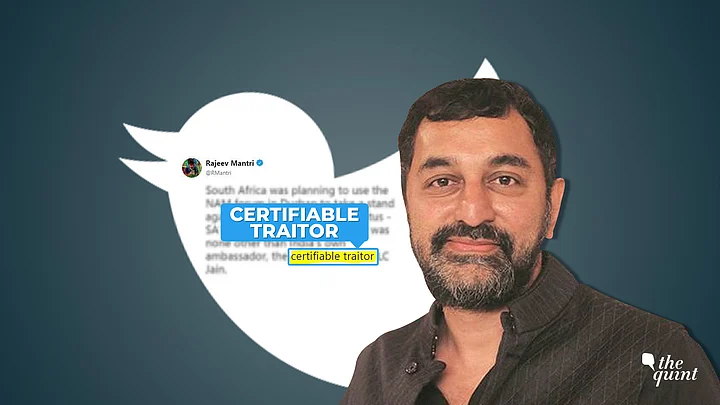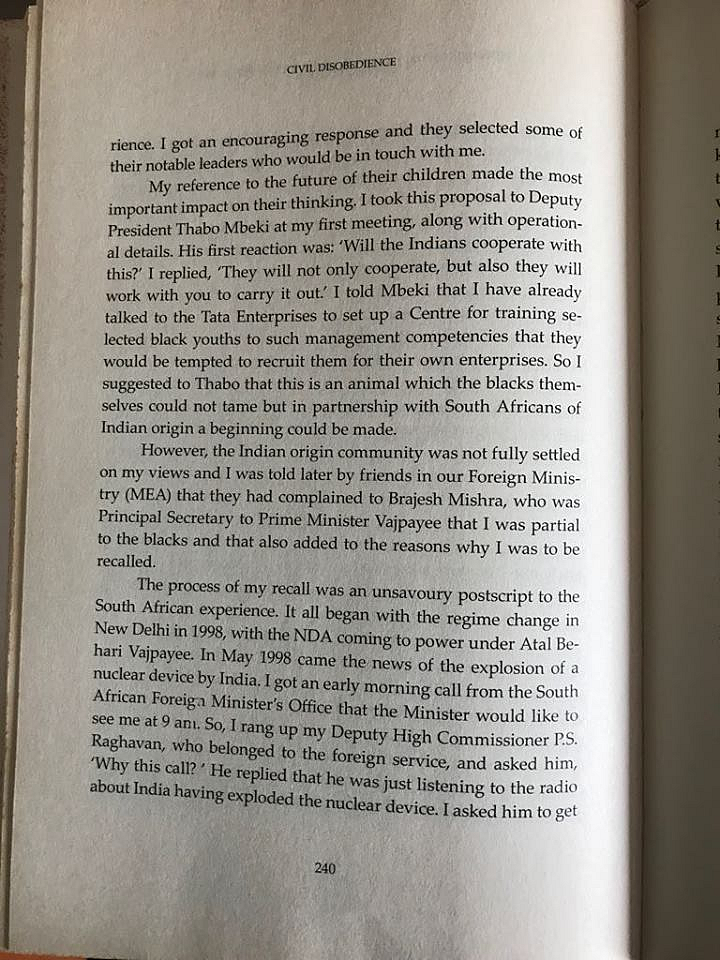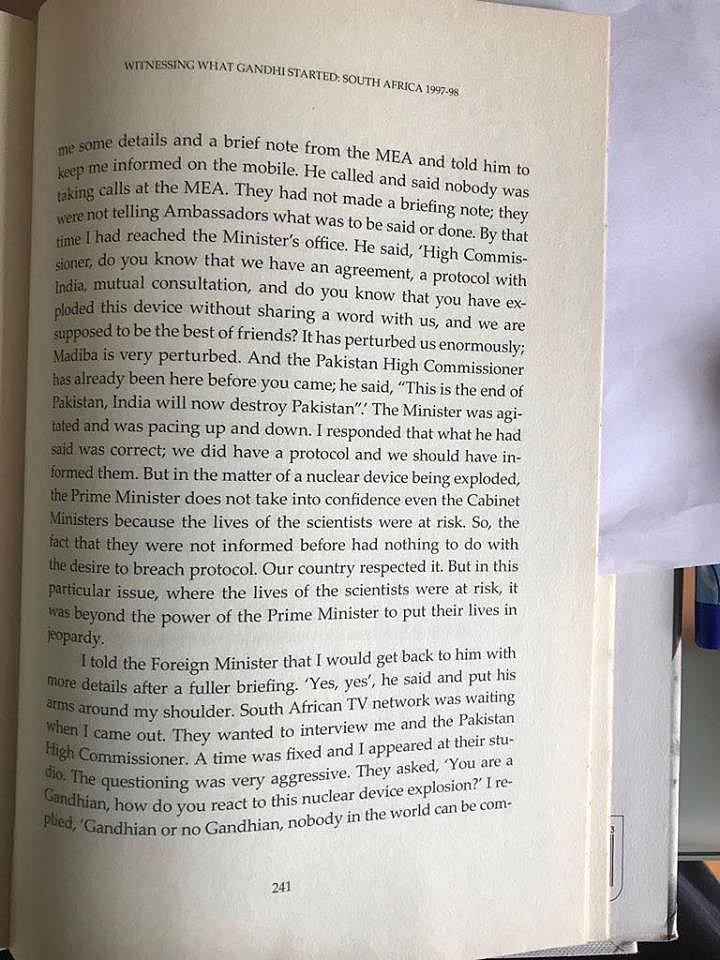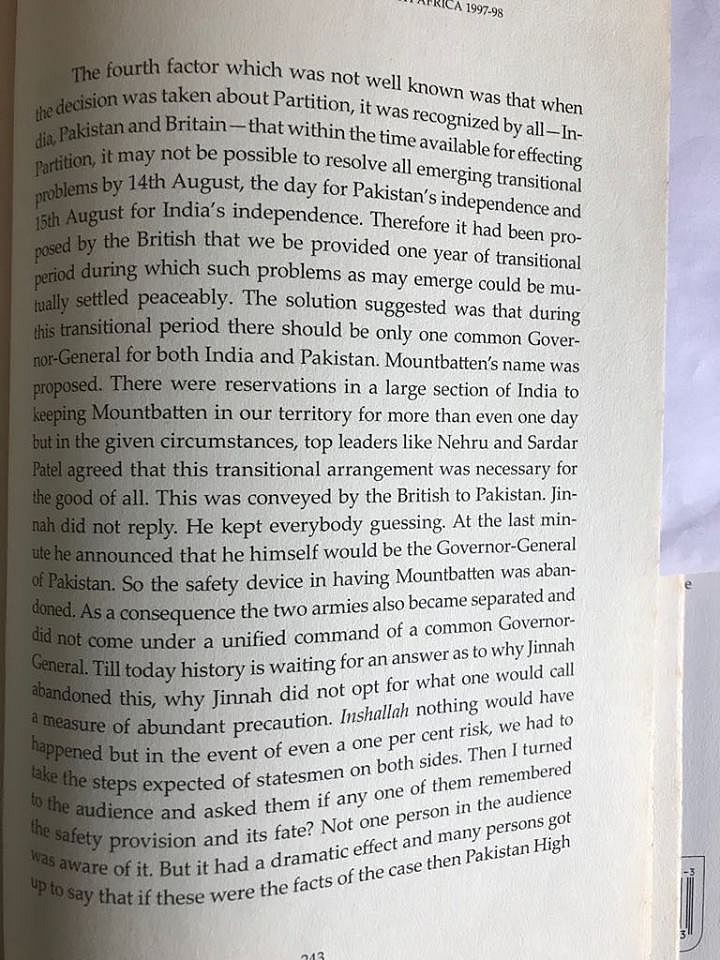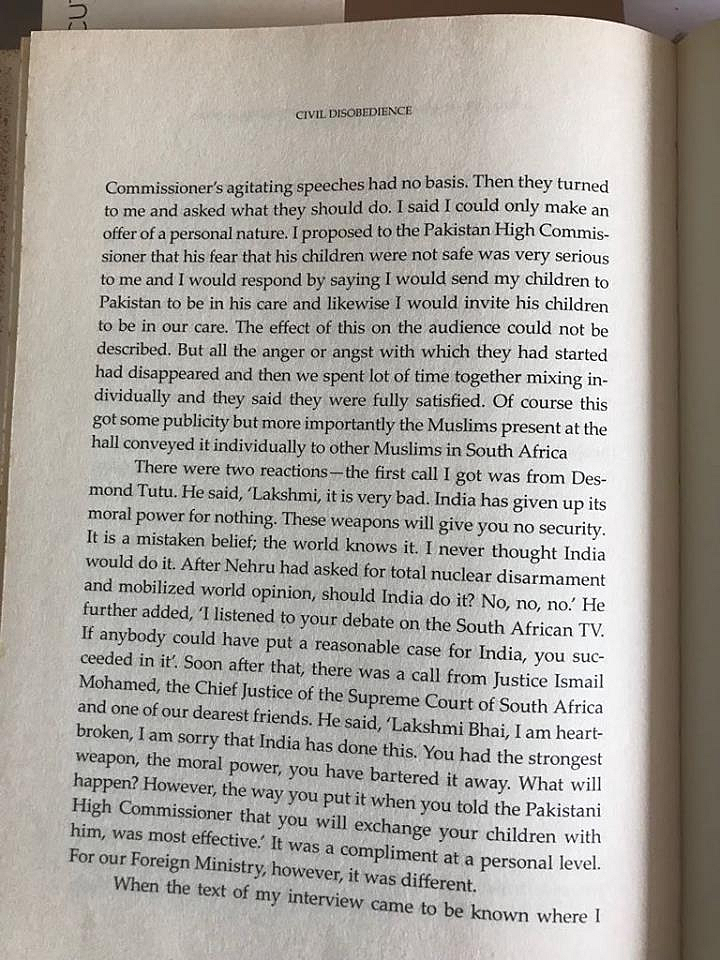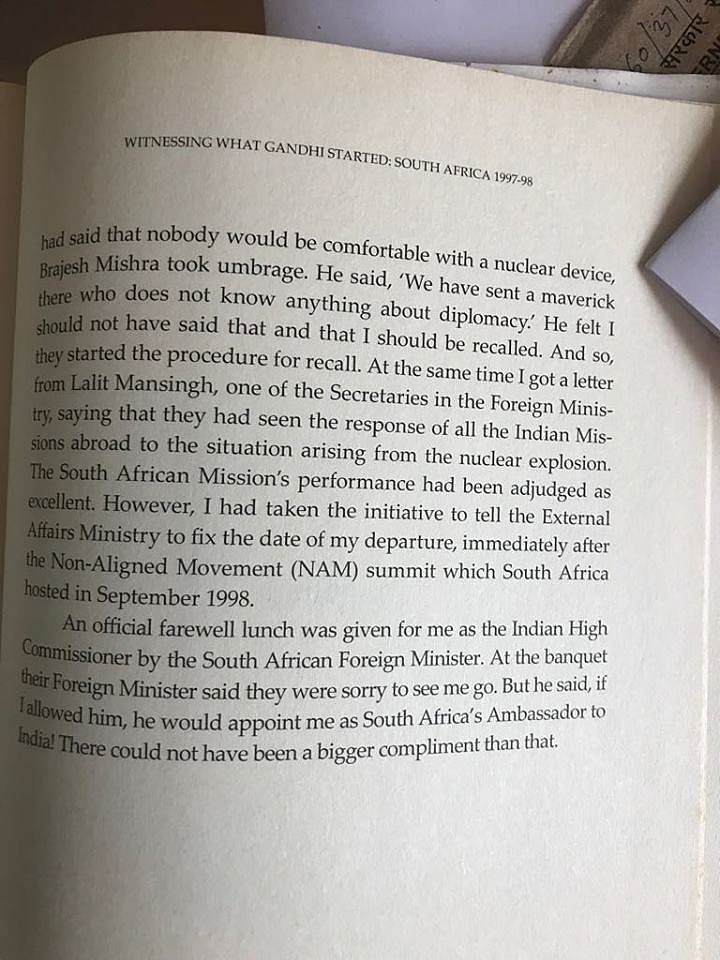Given the long and unimpeachable arc of my father's public life, which has its origins in India's freedom struggle, I find it somewhat odd that I have to rise to his defence.
But then, these are the times we are in.
For those who came in late, the provocation for this piece is the ballyhoo around a series of disgraceful, and defamatory tweets about my father, LC Jain, posted by a man called Rajeev Mantri, which has prompted my brother, Supreme Court advocate Gopal Jain, and me to send him a legal notice.
What exactly did Mantri say that led to the notice? Quite simply, he resurrected a 20-year old episode when my father was India's High Commissioner to South Africa to describe him as a 'certifiable traitor', a comment so hateful and ludicrous that it would not pass muster with anyone even remotely familiar with my father's public career.
At any rate, Mantri, either wilfully or out of ignorance, thought it fit to make such a remark, and his many online fellow-travellers ensured his bilge ricocheted around Twitter-sphere. He posted the tweets in December 2017, but they came to my attention only last month when R Jagannathan, the editor of Swarajya magazine, retweeted them.
As a journalist, I am well aware of the importance of freedom of speech. Every day I face a stream of bile on social media which I ignore.
But free speech does not mean you can defame a man who is no longer alive.
The legal response was a reaction – a rarer than rare reaction – to a gratuitously terrible comment, from a platform of some influence. Contrary to Mantri’s protestations after being served the notice that he is an 'ordinary citizen,' he is the founder of a venture capital firm, writes for leading publications, and has a sizeable Twitter following (including the Prime Minister).
Hence the decision, by my brother and I, to not let Mantri’s tweets go unchallenged. Hence the notice, asking him to delete the tweets and issue a public apology, or face legal action.
Another reason for this piece was to address the discussion that has been revived around the lingering question of whether my father went against the Indian government's stand.
This, I felt requires some clarification, addressed not to the vile ecosystem that has risen to defend Mantri, but to those who, while appalled by the Mantri tweets, may not be entirely conversant with the facts.
To summarise, Mantri's 'certifiable traitor' tag is based on the wrongful assertion that my father, as High Commissioner, backed South Africa in its efforts to corner India in the aftermath of the Pokhran nuclear tests.
The only proof that Mantri supplies to back up this drivel is an undated piece in The Telegraph by KP Nayar which claims "(Brajesh) Mishra (National Security Adviser in the Vajpayee government) met an array of South African officials and ministers, most of whom were expectedly nasty. The situation was compounded by the ugly fact that Mishra did not know where L.C. Jain, the Gandhian appointed by I.K. Gujral as high commissioner to South Africa, stood although Jain was accompanying Mishra to all his meetings in Pretoria. Jain was against the Pokhran tests and made no bones about telling the South Africans as much."
Nayar supplies no attribution to back his claim. But even if one were to take his piece at face value, it is inexplicable how anyone can hold this as evidence of my father being a 'certifiable traitor'.
For those interested, the facts are as follows: my father was indeed appointed High Commissioner under the Gujral government, and was recalled by the Vajpayee government in October 1998.
He had a history of taking contrarian, non-conformist positions while holding public office.
It is equally true that the South Africans were deeply distressed by the Pokhran tests, and made no bones about saying as much to India, a country with which South Africa has a deep, shared history.
But by my father’s own account, laid out in his memoirs Civil Disobedience, published in 2010, he did not 'go against' the Indian position. (Screenshots of the relevant passages from the book below; am summarising the key points for convenience.)
In fact, he mentions receiving a letter from the Ministry of External Affairs “saying that they had seen the response of all the Indian Missions abroad to the situation arising from the nuclear explosion. The South African Mission’s performance had been adjudged as excellent”.
The doubts on his position on the nuclear tests arose over his comments in a studio debate on South African TV with the Pakistan High Commissioner soon after the blasts.
As he records it, he was aggressively asked by the TV host: "You are a Gandhian – how can you react to nuclear explosion?" He said "Gandhian or no Gandhian, no one in world can be comfortable with a nuclear device. That is universal." This is the comment which according to my father irked Brajesh Mishra and set the stage for his recall.
But note what my father goes on to say, on the same TV show, in defence of India's compulsions in conducting the tests: "We have neighbours who have nuclear devices, we have a population of 1 billion and we are democratic government. It (the Indian government) has to give a sense of confidence. There can be no two views on that."
Was he uncomfortable with the tests? I never had occasion to speak to him at length about it, but it is a fair assumption, given his beliefs.
Even so, there is nothing in the public record – at least none that I have come across – that can credibly establish that in his formal role as a diplomat, whether it was with the South African government, the press or in other public interactions, he stridently opposed the tests or undermined India's diplomatic efforts, as the Nayar piece avers.
I suspect – though I have no way of knowing – that the assertions in the Nayar piece would have originated from 'sources close to Brajesh Mishra'. It was no secret that my father had a prickly relationship with the late NSA. (More in this interview my father gave shortly after his return).
The question that remains is why did Mantri feel the need to resurrect this episode from 20 years ago? And why did Jagannathan retweet the tweets several months later? I think I have a theory, but this is not the time or place for it.
For now, chapter closed.
(Sreenivasan Jain is managing editor with NDTV 24X7. He anchors the ground reportage documentary show Truth vs Hype and co-anchors Reality Check. This article was first posted by the author on his Facebook page and has been republished with permission. This is an opinion piece and the views expressed above are the author’s own. The Quint neither endorses nor is responsible for the same.)
